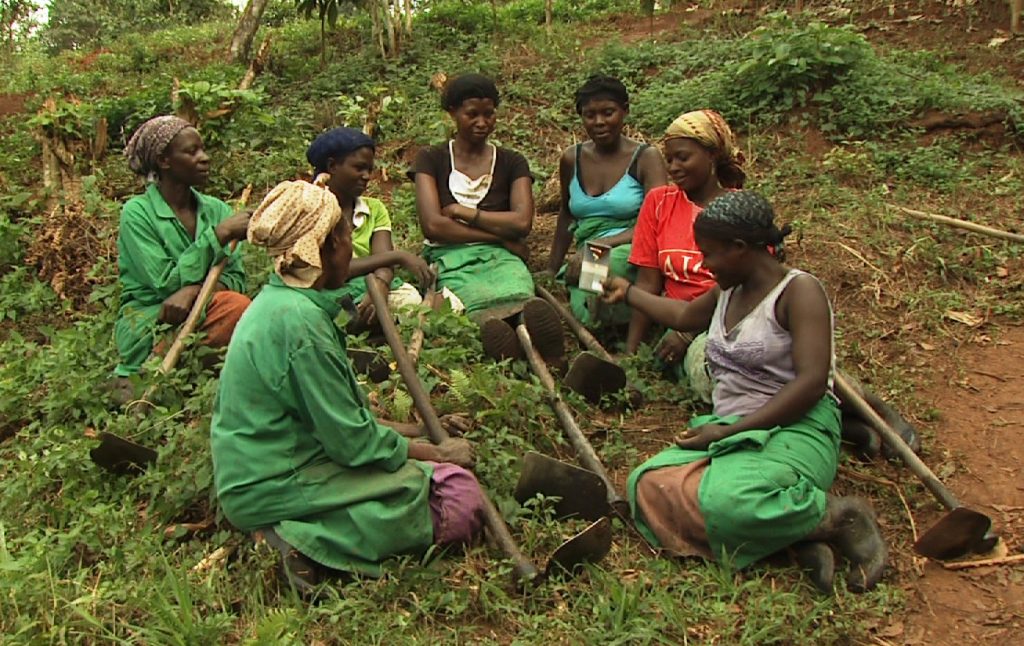The agriculture sector certainly forms the backbone of many nations, especially developing countries like Nigeria by providing sustenance and economic stability. However, behind the idyllic scenes of farming lie deep-rooted issues that plague women working in this sector. Among these challenges, the occurrence of rape against women farmers on farms stands as a distressing reality and menace.
Women in the agriculture sector may face specific challenges and vulnerabilities due to their gender such as limited access to resources, inadequate protection and social inequalities. For instance, incidences of rape or sexual assault on farms can occur when women farmers are alone or working in isolated farm areas; making them more susceptible to attacks. The sensitivity of this issue calls for the implementation of strict security measures such as improved lighting, better infrastructure, and increased law enforcement presence, which can help create safer working environments for women farmers.
Recently in Abia State, Nigeria, a 53-year-old woman farmer, Mrs. Amarachi Nwanozie, was reportedly raped to death on her farm; as her dead body was allegedly found alongside her mobile phone and a bundle of cassava stem in a bush close to her farm by personnel of the Abia State Community Policing/Vigilante, Isiala Ngwa Community South Command. According to a source in the village, the farmer, who was well-known in the neighbourhood for her productive farming output, left for one of her farms on Tuesday morning, but did not return by evening, leading her husband to raise a concern about his wife’s disappearance on Wednesday evening, the next day.
The Abia State Community Policing and Vigilante Group in Isiala Ngwa South, had been alerted after her sudden disappearance, and thereafter organised a search party together with some other members of the Ngwama community for the middle-aged farmer. In an unfortunate development, Mrs. Nwanozie’s dead body was later discovered near her farm on Thursday by the search team, with bruises around her private parts that suggested that she may have been raped to death by unknown hoodlums. For now, six suspects have been interrogated and handed over to the Omoba Police division by the State Commandant of Abia State Community Policing/Vigilante, Dr. Daniel Iheadindueme.
The rape of women farmers in Nigeria is a pervasive problem that remains largely downplayed, unreported and under-acknowledged. Due to social stigmas, fear of retribution, and a lack of trust in the justice system, among others; many victims choose to suffer in silence. Nonetheless, anecdotal evidence and sporadic reports indicate that this heinous crime is widespread across rural farming communities. Another instance is the case of an 80-year-old woman, Mrs. Aderibigbe Felicia, who was killed by suspected hoodlums inside her farm in the Costain area in Ore, Odigbo Local Government Area of Ondo State in May 2023.
According to community members, the old woman farmer was reported to have been raped to death based on the position in which her corpse was found on her farm. The state police commissioner, Taiwo Jesubiyi, had briefed newsmen, in Akure the state capital, a “27year-old farm labourer, Mima Chinecherem from Ebonyi state, who specialised in Banga cutting at night, was apprehended in connection with the killing of an 80year-old grandmother.
Also, three female farmers were brutally attacked with machetes, in a farmland at Irele-Ekiti, Ikole Local Government Area of Ekiti State, in April 2021, by six suspected herdsmen. A source had told newsmen that the herders demanded money from the victims, but became infuriated after the women failed to give them the money they asked for and resisted attempts to rape them. Thereafter, the perpetrators still forced money out of the women’s hand, they had disappeared into the bush after dealing terribly with the women for refusing their sexual assault attempt. Till date, there were no reported cases of arrest in relation to this report.
In August 2021, some female farmers in Iseyin, Oyo State, under the aegis of the All Farmers Association of Nigeria (AFAN), lamented the reported cases of rape of aged female farmers by some herdsmen in the state. Some of the women had cried out, saying that the young herders particularly attacked the older women and even the young women alike on their way to farms, which was fast becoming a common trend in the farming community, thus discouraging many active women from going to their farms alone. Similarly in 2017, a 71-year-old farmer and rape survivor, Victoria Akinseye, had told a coalition of youth groups and farmers in Akure, Ondo State narrated how she was raped by suspected herdsmen in Ore, Odigbo Local Government Area of the state, attributing the unfortunate incidence to the growing attacks by herdsmen in the country. Although, some suspects were paraded according to later reports, there was no publication or report of the punishment meted out to them. Later in August 2021, three women in Ore had reported one Stephen John, a farmer as the one, who raped them at their different farmlands, using a cutlass to frighten them into submission. When arrested and paraded by the Ondo State Police Command, Ojo had confessed that he derived “pleasure raping old women on their farms”.
These reports summarily show how that the rape of women farmers is becoming grave and recurrent issue of concern in Nigeria. Hence, combating this problem requires a multifaceted approach encompassing legal reforms, gender empowerment, community engagement, and improved farm security. If the safety and well-being of women farmers in Nigeria is not given the priority it deserves, it would have far-reaching consequences, both on the individuals affected and the broader society – victims could suffer severe physical and psychological trauma – leading to long-term mental health issues, decreased productivity, and economic instability. This is just as the fear of violence deters women from engaging in farming activities, thus hampering agricultural productivity and exacerbating food insecurity.



